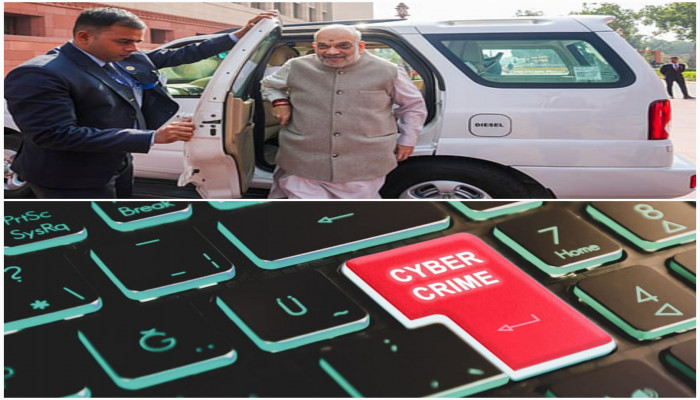Government to deploy AI tools to detect and shut down ‘mule accounts’: Amit Shah
- In Reports
- 06:47 PM, Feb 11, 2025
- Myind Staff
Union Home Minister Amit Shah stated that the government has developed a strategy to utilise Artificial Intelligence (AI) tools to detect and shut down "mule accounts" before they can be used for laundering money obtained through cyber fraud.
During a meeting of the Parliamentary Consultative Committee for the MHA on ‘Cyber Security and Cyber Crime,’ Shah announced, “Efforts are underway to use AI tools for identifying mule accounts in coordination with the Reserve Bank of India and all banks, to establish a system for their detection to ensure that the money defrauded is not laundered.”
Chairing the meeting, he also emphasised the need to raise awareness about cyber fraud prevention, advocating Prime Minister Narendra Modi’s approach of “Stop-Think-Take Action.”
The Home Minister stated that the government is implementing a four-pronged strategy to combat cybercrime, focusing on "Convergence, Coordination, Communication and Capacity." He also emphasised that the MHA's objective "is to ensure zero cybercrime cases and their FIRs."
The Home Minister stated that coordination between ministries and departments within the Ministry of Home Affairs has been enhanced, ensuring efficient communication and a seamless exchange of information. He expressed, “A healthy tradition of exchange of information between the MHA, the Ministry of Electronics and IT, CERT-IN, I4C, and departments like Telecom and Banking has led to successfully tackling many cybercrime cases”.
Union Minister of State for Home Affairs Nityanand Rai, Bandi Sanjay Kumar, committee members, Union Home Secretary Govind Mohan and senior officials of the Home Ministry were present in the meeting. The Home Minister pointed out that the growth of digital infrastructure has resulted in a rise in cyberattacks. He said, "When we look at cyberspace from a different perspective, it forms a complex network of software, services and users. We need to control them to deal with issues in cyberspace”.
According to Shah, “Today, 95 per cent of villages in the country are digitally connected and one lakh gram panchayats are equipped with Wi-Fi hotspots. In the past ten years, the number of internet users has increased by 4.5 times.” He further stated that 2024 UPI facilitated 246 trillion transactions amounting to ₹17.221 lakh crore, accounting for 48% of all global digital transactions.
Shah also highlighted that India's startup ecosystem has grown to become the third largest in the world. By 2023, the digital economy contributed approximately 12% (₹32 lakh crore) to the country's GDP, generating around 15 million jobs.
Providing an update on registered cases, the Home Minister mentioned that 1,43,000 FIRs have been filed on the I4C portal, which over 19 crore people have accessed. Additionally, 805 apps and 3,266 website links have been blocked for national security reasons based on I4C’s recommendations.
“More to these 399 banks and financial intermediaries have come on board. Over 6 lakh suspicious data points have been shared, more than 19 lakh mule accounts have been caught, and suspicious transactions worth Rs 2,038 crore have been prevented,” Shah mentioned that Cyber Crime Forensic Training Labs have been set up in 33 states and union territories.
On the ‘CyTrain’ platform, a “Massive Open Online Course (MOOC)” platform, 101,561 police officers have enrolled, and more than 78,000 certificates have been awarded.







Comments